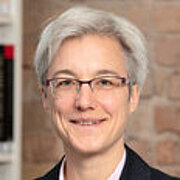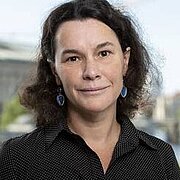About the programme
The Women in Sustainability (WiS) Mentoring Programme is a small-group mentoring programme for women-identifying students who are interested in careers in the fields of climate, energy, and sustainability. Recognizing that these fields are often male-dominated, the programme has a special focus on providing career-oriented guidance, support and training to women who are pursuing careers in these areas.
This initiative is designed for women-identifying students currently enrolled in Hertie School graduate programmes (MPP, MIA, MDS), with a demonstrated academic and/or professional interest in topics related to climate, energy or sustainability.
Mentorship will take place in the form of 3-5 small group sessions through the course of the academic year. These sessions should facilitate candid, open exchange with professionals from the field. Applications for the 2023-2024 Academic Year Cohort will open on Monday, September 25, 2023. See below for more information.
Possible topics include:
- Getting to know the climate, energy, and sustainability fields, especially in Germany and Europe, and potential career paths.
- Unpacking the main trends in the field and explaining entry requirements and job search strategies.
- Training on networking and job search strategies, and learning about relevant professional networks.
- Addressing the main barriers that women face in sustainability-related industries.
- Learning from personal stories of women in the field.
Participants will actively contribute to these sessions and will have the opportunity to provide input on the design of some elements of the mentoring programme.
Background
Sustainability is a topic crucial for the future of our planet and we need all voices to find solutions for a more sustainable future. When it comes to climate, energy, and sustainability policy, though, occupational fields tend to be male-dominated.
For example, according to the International Energy Agency, only in the European Union, the percentage of female senior officials and managers in the energy sector is far lower than in general economy (33%), with numbers in mining and extraction of petroleum and gas hardly exceeding 15%. For OECD countries, the percentage of women inventors also remains low, reaching only 15% across all technology domains, with environment-related technologies just below the average and in power generation only around 10%. According to the latest Gender Equality in Public Administration (GEPA) report by UN Development Programme and the University of Pittsburgh, women’s participation in environmental protection ministries is among the lowest of the twenty policy areas examined and averages 33% globally - far from gender-balance.
The Women in Sustainability mentoring programme aims to contribute to changing this situation by helping women kick-start their careers in the sustainability field.
Application and programme timeline
Applications for the 2023/24 Academic Year will open on Monday, September 25 - the link to the application form will be available on this page. The 2023/24 cohort will be announced in mid-October 2023.
Programme dates for 2023/24:
- Monday, September 25, 2023 - Applications open
- Friday, October 6, 2023 - Application deadline
- Week of October 16, 2023 - Cohort announced
- Early November 2023 - Welcome session
- Late November 2023 - First mentoring session
- Spring Semester 2024 - Additional mentoring sessions
Past Mentors

Dr. Brigitte Knopf is Secretary General of MCC. Her recent work focuses on the implementation of the Paris Agreement at the German and international level. Since September 2020, she is a member and deputy chairperson of the new Council of Experts on Climate Change appointed by the German government. In the context of the G20 process, she develops strategies how carbon pricing could support not only climate change mitigation, but also finance the Sustainable Development Goals (SDGs).
Before joining MCC in 2015, she was deputy head of the research domain Sustainable Solutions at the Potsdam-Institute for Climate Impact Research (PIK) and head of the group Energy Strategies Europe and Germany. Brigitte Knopf is also interested in scientific policy advice and the design of the science-policy interface. From 2009 to 2011 she was Senior Advisor of the Technical Support Unit of the IPCC Working Group III for preparing the IPCC Special Report on Renewables. She is also contributing author in IPCC's Fifths Assessment Report of Working Group III on the Mitigation of Climate Change. She holds a PhD in physics.

Jesse Scott is the International Director of the think tank Agora Energiewende. She leads Agora’s work on the energy transition beyond Europe in major and emerging economies, including energy systems research projects, collaborations with a global network of think tanks, and political strategy. Before joining Agora in February 2019, Jesse worked at the International Energy Agency in Paris where she was a lead author of the Agency’s pathbreaking report on the opportunities and risks of digitalising the energy system. Prior to that, she worked for fifteen years in Brussels on European Union energy and climate policy-making, including as Head of Climate and Environment for the electricity sector association Eurelectric and as organiser of cross-sector advocacy to strengthen the EU Emissions Trading System from 2011 to 2014. Jesse teaches at the Hertie School in Berlin on the theory and practice of influencing public policy, with a focus on climate policies and the EU Green Deal, and at Edinburgh University in Scotland for the programme Carbon Management. She is an advisor to the World Economic Forum, the Climate Bonds Initiative, and the Florence School of Regulation. Jesse’s experience spans business, government, campaigning, law, and think tanks. She holds a degree and masters from Cambridge University and also studied in Italy at the European University Institute.

